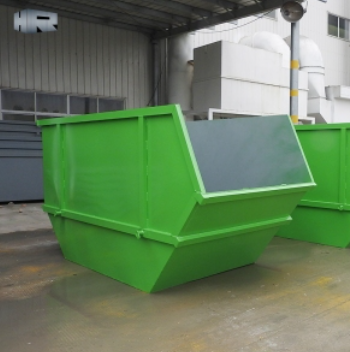
skip bins are a convenient and efficient way to manage waste disposal. Whether you are renovating your home, conducting a spring clean, or involved in a construction project, skip bins can help you dispose of waste easily and responsibly. However, to make the most out of your skip bin and ensure efficient waste disposal, there are a few things you should keep in mind.
1. Choose the right size: Selecting the appropriate size of skip bin is crucial. If you choose a bin that is too small, you may have to make multiple trips to dispose of all your waste. On the other hand, a bin that is too large may result in unnecessary expenses. Estimate the volume of waste you will generate and opt for a size that suits your requirements.
2. Separate and sort waste: Before disposing of waste in the skip bin, it is advisable to separate and sort it. Separate recyclable materials such as paper, cardboard, glass, and plastic from general waste. This will help reduce the amount of waste that ends up in landfill and maximize recycling opportunities. Check with your skip bin provider to see if they offer separate bins for recyclable materials.
3. Compact waste: Efficiently utilizing the space in your skip bin can save you money and reduce the number of pick-ups needed. By compacting waste materials, you can fit more into the bin. Flatten boxes, break down furniture, and crush bulky items whenever possible. However, be cautious not to overload the bin or exceed the weight limit set by the skip bin provider.
4. Hazardous waste: Skip bins are not suitable for disposing of hazardous materials such as chemicals, paints, batteries, or asbestos. These items require special handling and should be disposed of separately. Contact your local council or Waste Management facility to find out how to dispose of hazardous waste safely.
5. Prohibited items: Most skip bin providers have a list of prohibited items that should not be placed in the bin. This may include items such as flammable materials, electronics, tires, or medical waste. Make sure you are aware of the prohibited items and find alternative disposal methods for them.
6. Fill level: Fill the skip bin evenly and avoid exceeding the fill level indicated by the skip bin provider. Overfilling a skip bin can create safety hazards during transportation and may attract additional charges. If you are unsure about the fill level, consult with the skip bin provider for guidance.
7. Plan ahead: Before hiring a skip bin, it is essential to plan ahead and schedule its delivery and removal. Determine the duration you will need the skip bin for and consider any potential delays or extensions that may arise. By planning ahead, you can ensure smooth waste disposal operations and avoid unnecessary costs.
8. Consider environmental implications: While skip bins offer convenience, it is important to consider the environmental impact of waste disposal. Opt for skip bin providers who prioritize recycling and proper disposal methods. This will help reduce your carbon footprint and contribute to a more sustainable waste management system.
Efficiently using a skip bin for waste disposal requires careful planning, organization, and responsible waste management practices. By following these tips, you can make the most out of your skip bin and ensure efficient and environmentally-friendly waste disposal.




ความคิดเห็น
(0)